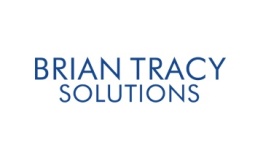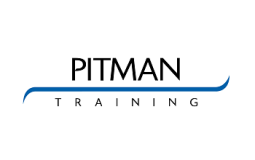BizSmart®
We're Sorry
This BizSmart® profile is no longer active. May we suggest a few alternatives?
Are you looking for an opportunity in our Business Consulting section?
Here are a few opportunities in our directory that may interest you
Information requested
The future of co-working is here! Meet the growing demand for shared work spaces!
Available Locations
Franchise opportunities currently available in the United Kingdom.
Business Type
Franchise
Minimum Investment:
£155,000
Financing Assistance
3rd Party
SBA Approved
Yes
Request FREE Info
Request FREE Info
Added to the list
More information requested
Start your own courier franchise. World Options offers you the chance to become a part of the international courier business.
Information requested
Start your own courier franchise. World Options offers you the chance to become a part of the international courier business.
Available Locations
Franchise opportunities available throughout the UK
Business Type
Franchise
Minimum Investment:
£35,000
Financing Assistance
3rd Party
Franchise Associations
bfa Established Member
Request FREE Info
Request FREE Info
Added to the list
More information requested
Start your own rewarding business with a GoodOaks care franchise. With full training and ongoing support, we’ll help you build a successful business in homecare.
Information requested
Start your own rewarding business with a GoodOaks care franchise. With full training and ongoing support, we’ll help you build a successful business in homecare.
Available Locations
Opportunities available across England
Business Type
Franchise
Minimum Investment:
£50,000
Financing Assistance
3rd Party
Request FREE Info
Request FREE Info
Added to the list
More information requested
Join a prestigous brand with international credibility and over 20 years experience. High margins, low overheads, flexible schedule. A ‘tool box‘ of resources, a scaleable and profitable opportunity – without franchise fees. Limited Distribution Licenses.
Information requested
Join a prestigous brand with international credibility and over 20 years experience. High margins, low overheads, flexible schedule. A ‘tool box‘ of resources, a scaleable and profitable opportunity – without franchise fees. Limited Distribution Licenses.
Available Locations
Opportunities available across the UK
Business Type
Licence
Minimum Investment:
£39,950
Financing Assistance
None
Request FREE Info
Request FREE Info
Added to the list
More information requested
Join Refresh Renovation's franchise network and help to deliver dream renovations to clients!
Information requested
Join Refresh Renovation's franchise network and help to deliver dream renovations to clients!
Available Locations
Single and multi-unit franchise opportunities available across the UK
Business Type
Franchise
Minimum Investment:
£20,000
Financing Assistance
3rd Party
Request FREE Info
Request FREE Info
Added to the list
More information requested
Join Pendleton Partners Business Coaching and enjoy coaching business owners with tried and tested, guaranteed growth secrets of our founder Rob Pendleton.
Information requested
Join Pendleton Partners Business Coaching and enjoy coaching business owners with tried and tested, guaranteed growth secrets of our founder Rob Pendleton.
Available Locations
Opportunities available in selected areas across the UK
Business Type
Partnership
Minimum Investment:
£20,000 + VAT
Financing Assistance
3rd Party
Request FREE Info
Request FREE Info
Added to the list
More information requested
Start your own local training centre with the Pitman Training Franchise and transform the lives of people in your local area.
Information requested
Start your own local training centre with the Pitman Training Franchise and transform the lives of people in your local area.
Available Locations
Single, multi-unit, area developer opportunities available in the UK.
Business Type
Franchise
Minimum Investment:
£130,000
Financing Assistance
3rd Party
SBA Approved
Yes
Request FREE Info
Request FREE Info
Added to the list
More information requested
Launch an Online Business Delivering Mobile Apps, Advanced Websites, and AI Solutions Without Coding Skills. Join the No1 Digital Marketing Network of Entrepreneurs and Achieve Financial Freedom.
Information requested
Launch an Online Business Delivering Mobile Apps, Advanced Websites, and AI Solutions Without Coding Skills. Join the No1 Digital Marketing Network of Entrepreneurs and Achieve Financial Freedom.
Available Locations
Across the UK.
Business Type
Franchise
Minimum Investment:
£14,995
Financing Assistance
None
Request FREE Info
Request FREE Info
Added to the list
More information requested
Affinity Associates is one of the UK’s leading accountancy firms, and has been trusted to support businesses and individuals with their accountancy needs, for more than 60 years.
Information requested
Affinity Associates is one of the UK’s leading accountancy firms, and has been trusted to support businesses and individuals with their accountancy needs, for more than 60 years.
Available Locations
Franchise opportunities available across the UK
Business Type
Franchise
Minimum Investment:
£25,000
Financing Assistance
3rd Party
Request FREE Info
Request FREE Info
Added to the list
More information requested
Are you passionate about people? Driven to lead? Ready to run a business with purpose? Oath Healthcare invites you to take the next step in your journey by becoming a franchise partner in one of the UK’s most rewarding and high-demand sectors.
Information requested
Are you passionate about people? Driven to lead? Ready to run a business with purpose? Oath Healthcare invites you to take the next step in your journey by becoming a franchise partner in one of the UK’s most rewarding and high-demand sectors.
Available Locations
Franchise locations available across the UK
Business Type
Franchise
Minimum Investment:
£30,000
Financing Assistance
3rd Party
Request FREE Info
Request FREE Info
Added to the list
More information requested
Looking to run a rewarding business that makes a real difference? If you’re passionate about care and want to serve your local community, a Prestige Nursing & Care franchise could be the perfect fit. Get in touch to learn more.
Information requested
Looking to run a rewarding business that makes a real difference? If you’re passionate about care and want to serve your local community, a Prestige Nursing & Care franchise could be the perfect fit. Get in touch to learn more.
Available Locations
Opportunities available across England and Scotland
Business Type
Franchise
Minimum Investment:
£33,000 + VAT
Financing Assistance
3rd Party
Franchise Associations
BFA Emerging
Request FREE Info
Request FREE Info
Added to the list
More information requested
Become part of the UK’s longest established claim solutions franchise network assisting property owners in their time of need.
Information requested
Become part of the UK’s longest established claim solutions franchise network assisting property owners in their time of need.
Available Locations
Opportunities available across the UK and Ireland
Business Type
Franchise
Minimum Investment:
£34,995
Financing Assistance
3rd Party
Request FREE Info
Request FREE Info
Added to the list
More information requested






































